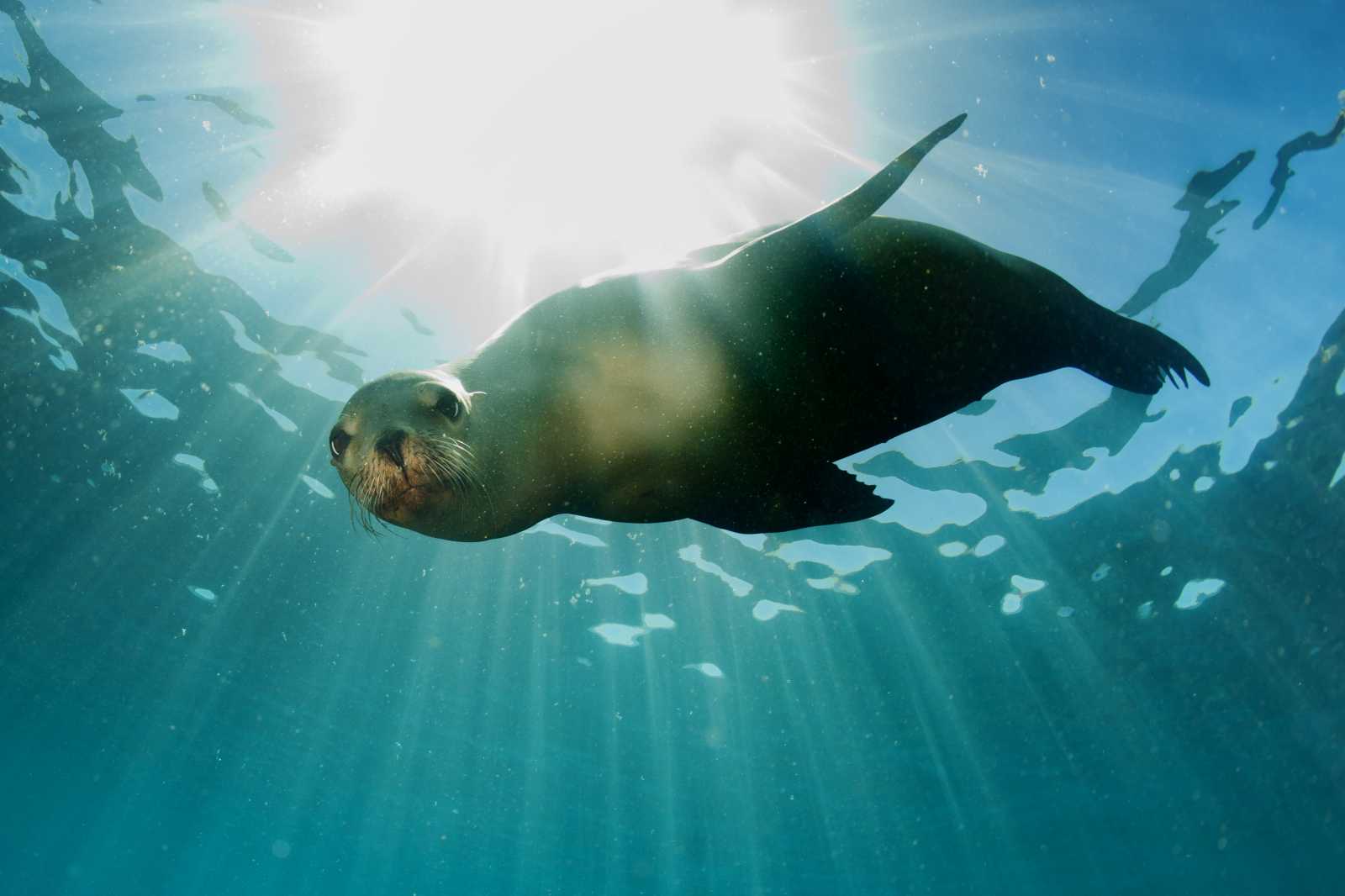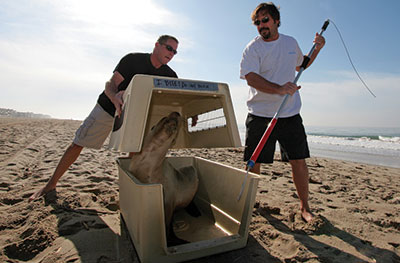
Changing ocean conditions (warming, toxic algae blooms, fish loss, fish at deeper levels) make rescue seasons for California sea lions hard to predict.
Recently, we have had more weaned pups who are malnourished, dehydrated, and lethargic than in past years.California sea lion pups are usually born mid-June. They begin weaning now but some pups cannot make a good transition from mom's nurturing to foraging for fish on their own. They weaken and become vulnerable to other diseases. They then strand on our beaches.

National Oceanic Atmospheric Association (NOAA) licenses Channel Island Marine and Wildlife Institute to rescue, rehab and release sea mammals that strand on Ventura and Santa Barbara County coastlines. CIMWI is the only nonprofit that is certified to do rescue, rehab and release. Sometimes, people call Santa Barbara Wildlife or VC Animal Control, but they are not the correct organization to do rescues.
Also, we are required to document dead sea mammals as well for NOAA's research purposes. California sea lions are sentinel mammals. The state of their health is an indicator of ocean health and by association human health as well.
Here is an abbreviated guideline to report a dead, sick, entangled, oiled, malnourished, or stranded sea mammal. This includes, seals, sea lions, sea turtles, dolphins, and whales.
How to Help a Stranded Marine Mammal:
Call Channel Island Marine and Wildlife Institute Hotline # @ (805) 567-1505 or click here to report it on their website. The dispatcher will send someone to assess the animal. Please note that not all sea mammals need rescue. Animals sometimes haul out of the water to rest or to recover from stress or a recent illness.
- Do not touch, feed, harass, cover, pour water on, allow dogs near, or coax the animal back into the water.
- Do not attempt a rescue on your own.
- Observe animal for report to Hotline. Stay at least 50 feet away from animal and note physical condition of animal.Is it lethargic, is there any injury, do ribs show?
- Determine location of animal. It is helpful if you can be very specific about the location (i.e. 200 yards from the bottom of the cement ramp at Rincon Beach Park.) Photos are very helpful!
-If you are able to wait with the animal, please keep people and dogs at least 50 feet away from animal. This is a legal safety measure that keeps dogs from getting bitten by a sick sea mammal. It also helps CIMWI assessment volunteers keep the animal from being chased back into the water.
Marine mammals are federally protected under the Marine Mammal Protection Act. Violations of this Act may result in fines of up to $10, 000 for each incident.ипотека онлайн заявка
